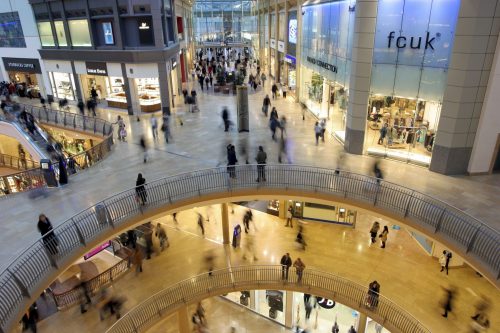17,500 UK chain stores closed in 2020, with West Mids seeing 1,468 shut

More 17,500 chain stores closed in 2020 across Great Britain including 1,468 in the West Midlands, with the real impact of the pandemic yet to be felt.
Almost 10,000 chain stores disappeared from Great Britain’s retail locations in 2020.
In total, 7,655 shops opened, compared to 17,532 closures, a net decline of 9,877.
In the West Midlands, 600 shops opened and 1,468 closed, a net decline of 868, according to PwC research compiled by the Local Data Company (LDC).
Although a decline was to be expected in a pandemic, this is the worst ever seen since 2015, with an average of 48 chain stores closing every day, and only 21 opening.
The findings starkly compare to five years ago in 2015, which saw West Midlands shop openings at 1,152 and with closures at 1,120, showing a net growth of 35 and the last time we saw growth over the last five years.
The report says real impact of the pandemic is yet to be felt as some stores ‘temporarily closed’ during lockdowns are unlikely to return.
Retail parks have seen the smallest number of net closures of any location (93) in the West Midlands, compared to shopping centres (285) and faring worst of all high streets (487).
Footfall was already holding up better in retail parks before the pandemic due to their investment in leisure and some retail parks have benefited by being anchored by essential retailers that have remained open, even during the tightest restrictions.
But the report says it is also because they are considered safer in the current environment while shopping centres by contrast, are often poorly located for consumers who want to shop local and travel less to city centres, and are more likely to host fashion retailers and chain restaurants, which are the number one and three most hard hit categories for net closure in 2020.
The drop off in high-street footfall has affected those multiple retailers located on high streets, particularly those in large city centres. However, this decline in multiples has been somewhat offset by growth in interest of local and independent operators.
Small towns, which have long been in decline at the expense of more populous areas and cities, are now also enjoying a mini-renaissance. Consumers now want to shop in these locations, and larger retailers want to be there, the report says.
City centres are now faring worse than suburbs and commuter towns, and shopping centre shops are twice as likely to close as retail parks. This shift in how retail locations have been affected is being driven by the number of people working from home.
With fewer people visiting, city centres, such as Birmingham, Bristol, Leeds and Newcastle, have seen an almost 8% decline in multiple stores.
Sarah Phillips, Midlands consumer markets lead at PwC, said: “For the first time, we’re seeing a widening gap between different types of locations: city centres and shopping centres are faltering, but certain retail parks with the right customer appeal are prospering.
“Location is more important than ever as we see a reversal of historical trends. For years, multiple operators have opened more sites in West Midlands cities and closed units in smaller towns. As consumer behaviours and location preferences change, partly as a result of COVID-19, retailers are moving to be where they need to be. Small towns will remain important but we can expect recovery in cities as workers and tourists return, albeit in smaller numbers adopting more flexible working models.”
She added: “The effect of COVID-19 is yet to be seen on most categories as much of the impact we’ve seen this year is a reflection of things that happened before the pandemic. This was not just the move online but areas such as legislative changes, e.g. for betting shops, consolidation due to previous overexpansion, or chainwide closures for restaurants and mobile phone stores that found themselves in trouble pre-COVID-19.
“The full extent will be revealed in the coming months as many of the CVAs and administrations in the early part of 2021 still haven’t been captured, including department stores, fashion retailers and hospitality operators that will leave big holes in city centre locations. Retail and leisure operators must take action to ensure they are in the right places, so they’re not left surrounded by empty units and shopfronts.
“However, there will be big opportunities for growth into the gaps that are emerging. After the global financial crisis we saw growth of discounters and foodservice chains that replaced exiting retailers. There is an opportunity for operators who can find the right location at the right time to thrive, even despite the current uncertainty.”








